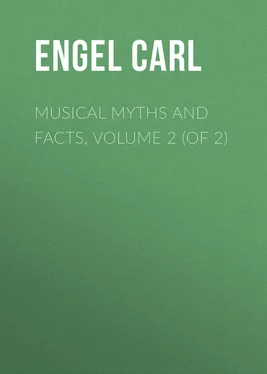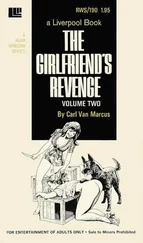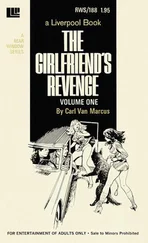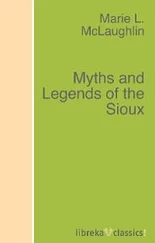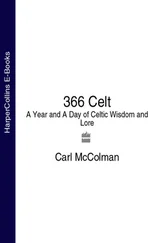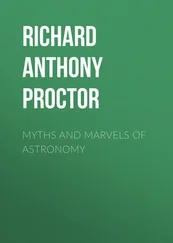Carl Engel - Musical Myths and Facts, Volume 2 (of 2)
Здесь есть возможность читать онлайн «Carl Engel - Musical Myths and Facts, Volume 2 (of 2)» — ознакомительный отрывок электронной книги совершенно бесплатно, а после прочтения отрывка купить полную версию. В некоторых случаях можно слушать аудио, скачать через торрент в формате fb2 и присутствует краткое содержание. Жанр: music_dancing, foreign_antique, foreign_prose, на английском языке. Описание произведения, (предисловие) а так же отзывы посетителей доступны на портале библиотеки ЛибКат.
- Название:Musical Myths and Facts, Volume 2 (of 2)
- Автор:
- Жанр:
- Год:неизвестен
- ISBN:нет данных
- Рейтинг книги:5 / 5. Голосов: 1
-
Избранное:Добавить в избранное
- Отзывы:
-
Ваша оценка:
- 100
- 1
- 2
- 3
- 4
- 5
Musical Myths and Facts, Volume 2 (of 2): краткое содержание, описание и аннотация
Предлагаем к чтению аннотацию, описание, краткое содержание или предисловие (зависит от того, что написал сам автор книги «Musical Myths and Facts, Volume 2 (of 2)»). Если вы не нашли необходимую информацию о книге — напишите в комментариях, мы постараемся отыскать её.
Musical Myths and Facts, Volume 2 (of 2) — читать онлайн ознакомительный отрывок
Ниже представлен текст книги, разбитый по страницам. Система сохранения места последней прочитанной страницы, позволяет с удобством читать онлайн бесплатно книгу «Musical Myths and Facts, Volume 2 (of 2)», без необходимости каждый раз заново искать на чём Вы остановились. Поставьте закладку, и сможете в любой момент перейти на страницу, на которой закончили чтение.
Интервал:
Закладка:
Mainwaring (P. 31). "Before we advance any farther in his history, it is necessary some account should be given of the opera at Hamburg, as well as some character of the composer and singers. The principal singers were Conratini and Mathyson. The latter was secretary to Sir Cyril Wych, who was resident for the English court, had Handel for his music-master, and was himself a fine player on the harpsichord. Mathyson was no great singer, for which reason he sung only occasionally; but he was a good actor, a good composer of lessons, and a good player on the harpsichord. He wrote and translated several treatises. One that he wrote was on composition. He had thoughts of writing the life of Handel many years before his death. Had he pursued this design, he would have had advantages beyond what we can pretend to, i. e. , ampler and fresher materials; at least, for so much of the life as had then elapsed. All that is here intended, is to give a plain, artless account of such particulars as we have been able to learn, and such only as we have reason to believe authentic."
Mattheson. "This whole story, with everything subsequently recorded about the operas in Hamburg, is so full of errors that one can scarcely rectify them. The Conradin (not Conratini) possessed almost perfect beauty, and had withal an extraordinary splendid voice, which extended in equal power from to  . This gave her claim to be the principal singer. Mattheson (not Mathyson) instructed her for several years; i. e. , he sung everything to her daily until she could retain it in her memory. At that time no gentleman was called a great singer unless he had a soprano voice, and such a gentleman we did not possess. An inferior teacher would certainly have been of no use to the Conradin. It is ridiculous to say of Mattheson that he sang only occasionally, considering that he was fifteen years at the theatre, that he acted almost always the principal character, exciting his audience by means of his unaffected singing as well as by his mimic art, which is of the utmost importance in opera, sometimes fear and terror, sometimes tears, sometimes merriment and delight. On the 9th of June, 1703, he made Handel's acquaintance at an organ, when Handel was 19¼ years old, and Mattheson 21¾, so that the difference in age amounted only to two years and a half.
. This gave her claim to be the principal singer. Mattheson (not Mathyson) instructed her for several years; i. e. , he sung everything to her daily until she could retain it in her memory. At that time no gentleman was called a great singer unless he had a soprano voice, and such a gentleman we did not possess. An inferior teacher would certainly have been of no use to the Conradin. It is ridiculous to say of Mattheson that he sang only occasionally, considering that he was fifteen years at the theatre, that he acted almost always the principal character, exciting his audience by means of his unaffected singing as well as by his mimic art, which is of the utmost importance in opera, sometimes fear and terror, sometimes tears, sometimes merriment and delight. On the 9th of June, 1703, he made Handel's acquaintance at an organ, when Handel was 19¼ years old, and Mattheson 21¾, so that the difference in age amounted only to two years and a half. 7 7 This is a mis-statement. Handel, born in 1685, was 18 years old; and Mattheson, born in 1681, was 22 years old.
On the 17th of August, in the same year, they travelled together to Lübeck, and played in that town, as well as in Hamburg, on the organ and harpsichord, so to say in emulation, in which Handel proved himself the most successful on the former instrument, but acknowledged himself obliged to yield the palm to his rival on the latter instrument; so that they made a compact together never to encroach upon each other's ground. This they have also faithfully kept during five or six years. On the 20th of October, Mattheson brought out his fifth, or sixth opera, called Cleopatra, on which occasion Handel played the harpsichord under the direction of the former. Soon afterwards, on the 7th of November in the same year, Sir John Wich, 8 8 Wych?
Knight, Royal Ambassador of Great Britain, engaged Mattheson as teacher and tutor for his son Cyril Wich, nine years old; and soon afterwards he made him his Secretary, with a salary of three hundred Reichsthaler, and two hundred ditto perquisites per annum . This gave occasion for jealous looks, especially as he now bid farewell to the theatre. Thus, after a secure foundation had been laid, the progress was very perceptible. True, the young master Wich had already had a few very unimportant lessons from Handel; they did not give satisfaction; the tutor was therefore appealed to, and under his guidance the young gentleman attained, in the course of time, a high degree of perfection. He succeeded his father, after the death of the latter, and obtained in 1729 the hereditary dignity of a Baronet. Mattheson always remained in royal service, was twelve or thirteen times 'Chargé des Affaires,' was employed on important missions, etc., – as has already been circumstantially recorded in the 'Ehrenpforte,' published in 1740. At last, after the lapse of fifty years, the highly-meritorious Baronet departed to a better world on the 18th of August, when he had just returned from an embassy to Russia. If the author of the present biography had consulted Mattheson's books, especially the above-mentioned 'Ehrenpforte,' and the 'Critica Musica,' which are publici juris , he would not have been devoid of authentic materials. Under those favourable conditions the though not great yet formerly principal singer and actor composed, notwithstanding all diplomatic and pressing dispatches in the whole district of Lower-Saxony, not only a great number of sacred pieces for the Church, but oratorios, operas, and music for the harpsichord and other instruments, which cannot be unknown in England. Besides he was occupied as Kapellmeister of the Duke of Holstein, as Canonicus et Cantor Cathedralis Hamburgensis, and as director of several grand concerts; he wrote not one , but eighty-six books, most of which treat profoundly of the theory of music and the art of singing. Furthermore, when the St. Michael's Church was burnt down, he contributed some forty thousand marks for a new organ, paid the money in advance, and intends to do more per codicillum in different ways. His life, led in the fear of God, extends now to the eightieth year, in cheerfulness and useful works. For the sake of truth this is here inserted."
Mainwaring (P. 32). "Conratini excelled greatly, both as an actress and as a singer. Keysar 9 9 Keiser.
did the same as a composer; but, being a man of gaiety and expence, involved himself in debts, which forced him to abscond. His operas for some time continued to be performed during his absence. On his disappearing, the person who before had played the second harpsichord demanded the first. This occasioned a dispute between him and Handel, the particulars of which, partly for the sake of their singularity, and partly on account of their importance, may deserve to be mentioned. On what reasons Handel grounded his claim to the first harpsichord I do not understand. He had played a violin in the orchestra, he had a good command on this instrument, and was known to have a better on the other. But the older candidate 10 10 Mattheson.
was not unfit for the office, and insisted on the right of succession. Handel seemed to have no plea but that of natural superiority, of which he was conscious, and from which he would not recede. This dispute occasioned parties in the Opera-house. On the one side it was said, with great appearance of reason, that to set such a boy as Handel over a person so much his senior, was both unjust and unprecedented. On the other, it was urged with some plausibility, that the opera was not to be ruined for punctilios; that it was easy to foresee, from the difficulties Keysar was under, that a composer would soon be wanted, but not so easy to find a person capable of succeeding him, unless it were Handel. In short, matters, they said, were now at that pass that the question, if fairly stated, was not who should conduct the opera, but whether there should be any opera at all. These arguments prevailed; and he to whom the first place seemed of course to be due, was constrained to yield it to his stripling competitor. But, how much he felt the indignity may be guessed from the nature and degree of his resentment, more suited to the glowing temper of an Italian, than to the phlegmatic constitution of a German."
Интервал:
Закладка:
Похожие книги на «Musical Myths and Facts, Volume 2 (of 2)»
Представляем Вашему вниманию похожие книги на «Musical Myths and Facts, Volume 2 (of 2)» списком для выбора. Мы отобрали схожую по названию и смыслу литературу в надежде предоставить читателям больше вариантов отыскать новые, интересные, ещё непрочитанные произведения.
Обсуждение, отзывы о книге «Musical Myths and Facts, Volume 2 (of 2)» и просто собственные мнения читателей. Оставьте ваши комментарии, напишите, что Вы думаете о произведении, его смысле или главных героях. Укажите что конкретно понравилось, а что нет, и почему Вы так считаете.
